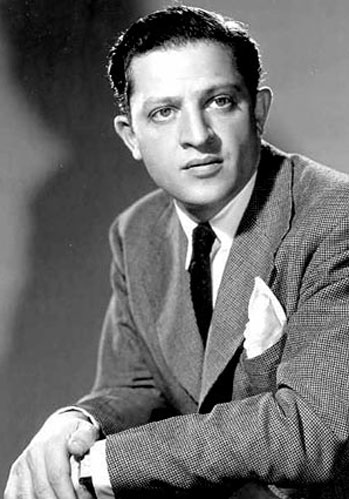Jules Dassin (Julius Dassin)

Dassin was born in Middletown, Connecticut, one of eight children of Berthe Vogel and Samuel Dassin, a barber. His family was Russian Jewish. Dassin grew up in Harlem and went to Morris High School in the Bronx. He joined the Communist Party USA in the 1930s and left it after the Hitler–Stalin Pact in 1939. He started as a Yiddish actor with the ARTEF (Yiddish Proletarian Theater) company in New York. He collaborated on a film with Jack Skurnick that was incomplete because of Skurnick’s early death. In 1937 he married Beatrice Launer, with whom he had three children. In May 1955 he met Melina Mercouri at the Cannes Film Festival. At about the same time, he discovered the literary works of Nikos Kazantzakis. These two elements created a bond with Greece. He divorced Launer in 1962 and married Mercouri in 1966. The couple had to leave Greece after the colonels’ coup in 1967. In 1970, they were accused of having financed an attempt to overthrow the dictatorship, but the charges were quickly dropped. Dassin and Mercouri lived in New York City during the 1970s; then, when the military dictatorship in Greece fell in 1974, they returned to Greece and lived out their lives there. While Mercouri became involved with politics and won a parliamentary seat, Dassin stayed with movie-making in Europe but found time in the U.S. to make another movie, the racial drama Uptight, which would be his last American film.
Dassin quickly became better known for his noir films Brute Force (1947), The Naked City (1948), and Thieves’ Highway (1949), which helped him to become “one of the leading American filmmakers of the postwar era.” Dassin’s most influential film was Rififi (1955), an early work in the “heist film” genre. It inspired later heist films, such as Ocean’s Eleven (1960). Another piece it inspired was Dassin’s own heist film Topkapi, filmed in France and Istanbul, Turkey with Melina Mercouri and Oscar winner Peter Ustinov. Dassin said Darryl F. Zanuck in 1948 called him into his office to inform him he would be blacklisted, but he still had enough time to make a movie for Fox. Dassin was blacklisted in Hollywood during the production of Night and the City (1950). He was not allowed on the studio property to edit or oversee the musical score for the film. He also had trouble finding work abroad, as U.S. distribution companies blacklisted the U.S. distribution of any European film associated with artists blacklisted in Hollywood. In 1952, after Dassin had been out of work for two years, actress Bette Davis hired him to direct her in the Broadway revue Two’s Company. The show closed early, however, and Dassin left for Europe. Dassin did not work as a film director again until Rififi in 1954 (a French production). Most of Dassin’s films in the decades following the blacklist are European productions. His prolific later career in Europe and the affiliation with Greece through his second wife, combined with a common pronunciation of his surname as “Da-SAN” in Europe, as opposed to “DASS-in” in the United States leads to a common misconception that he was a European director.
Born
- December, 18, 1911
- USA
- Middletown, Connecticut
Died
- March, 31, 2008
- Athens, Greece
Cause of Death
- flu
Cemetery
- First Cemetery
- Athens, Greece



